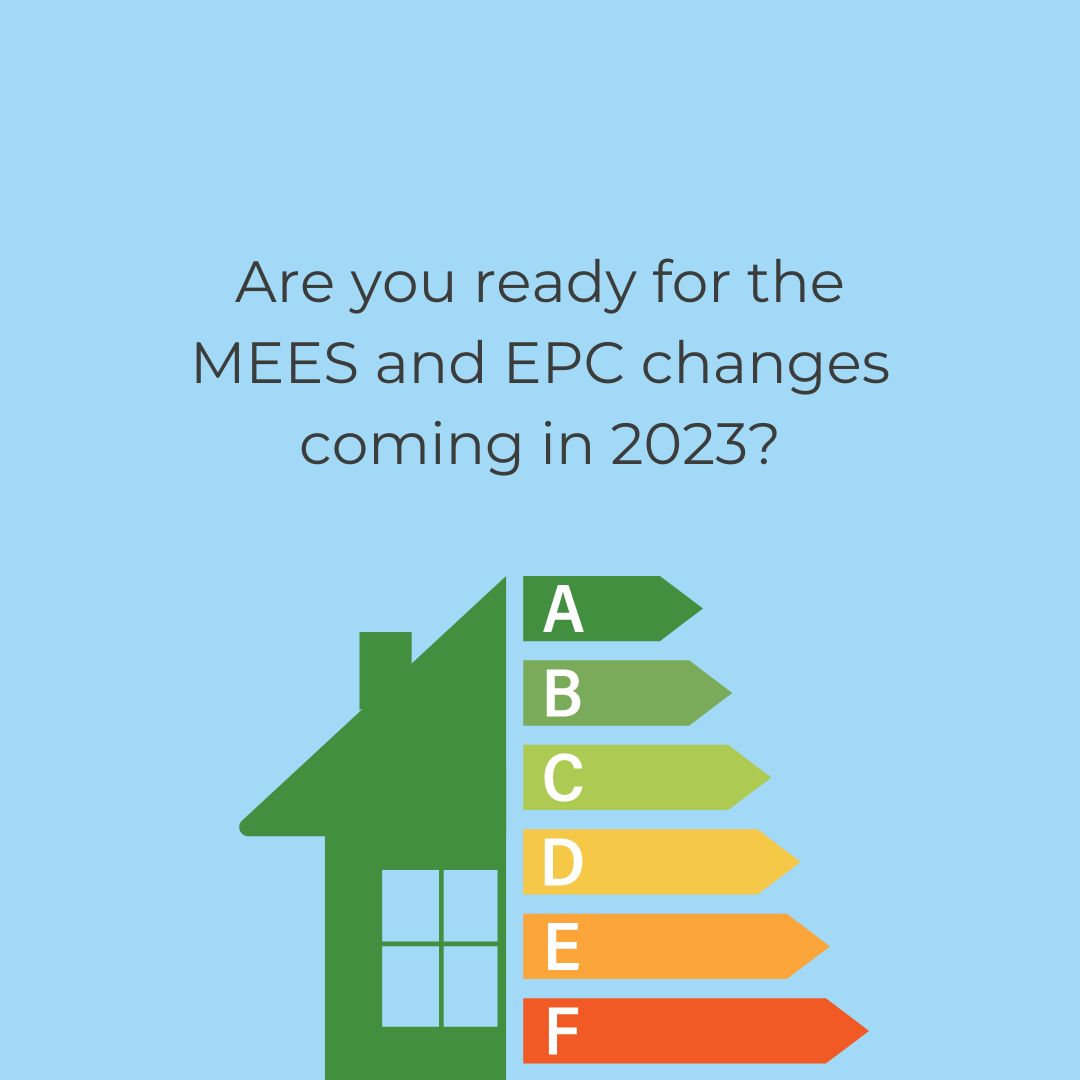Are you ready for the MEES and EPC changes coming in 2023?
Are you ready for the MEES and EPC changes coming in 2023?
As part of the government’s plans to reduce emissions to zero by 2050, in April 2023, the property sector will face new changes regarding EPC and Minimum Energy Efficiency (MEES).
With the changes on the horizon, we want to help you as much as possible by getting to grips with what is to come.
What are the current MEES requirements?
Under the current requirements, landlords of commercial properties in England and Wales are forbidden from granting a new lease unless the property has an EPC rating of an E or higher; this can be exempt but only under specialist circumstances.
For non-compliant landlords, the current penalty is a hefty fine, usually based on 10-20% of the property in question. The landlord in breach may also be published on a public register, giving the details of the breach.
What will change in April 2023?
On the 1st of April 2023, both new and existing leases will be required to have a EPC rating lower than an E.
Where there is a breach of the new regulations, the landlord will be exposed to financial penalties and publications.
Valid exemptions do, however, still apply and will need to be registered. These exemptions include:
if the consent of a third party is required to carry out works, but this is refused (such as a local planning authority), the improvements would result in a devaluation of the property by 5% or more or that the works would damage the property.
all cost-effective improvements have been carried out, but this still does not result in an EPC rating of E or higher, and the “seven-year rule” whereby it can be shown that the improvements would not pay for themselves through energy savings within a seven-year period.
What will the future hold?
Back in 2020, the government released a white paper indicating that all commercial properties should have an EPC rating of B or higher by 2030.
The government also launched a consultation proposing that the minimum EPC standard would increase incrementally. The consultation included a proposal that all commercial properties must have an EPC rating of C or above by the 1st of April 2027; this would then rise to a B rating or higher by 2030.
Although these legislations are still in draft formation, it seems highly likely that the EPC ratings for commercial properties will continue to change, rising to A and B ratings.
I’m a landlord; what should I do?
If you or someone you know is a landlord, there are steps you can take now to avoid confusion or rushing closer to the deadline date.
- · It’s been suggested that you act now to try and make your property MEES compliant.
- · Where possible, you should look into future-proofing your properties; this will avoid multiple changes.
- If you have existing leases, you should review them to check whether work can be carried out to improve the EPC rating and how much this will cost.
Important announcement and exciting changes
New Stamp Duty Rates - System Adjustments from Autumn Budget 2024
Boost your client satisfaction this Summer with Sort Move!
Brand Update – Q2 2024
Industry conundrums… sorted with Sort Move: Staying ahead of the competition
Industry conundrums… sorted with Sort Move: Delivering a faster start to your client’s conveyancing process.
Industry conundrums… sorted with Sort Move: Earn more by doing less
Industry conundrums… sorted with Sort Move: Streamline your Conveyancing process
Easter Quiz 2024
